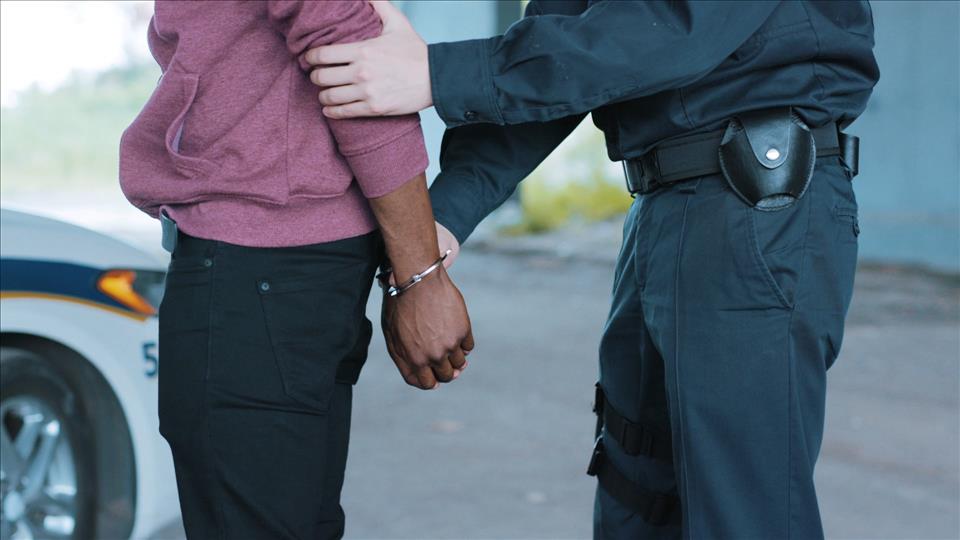(MENAFN- The Conversation) A class-action lawsuit was brought against the Toronto Police Service in August over the force's historic use of street checks, known as carding. The lawsuit highlights the damaging and discriminatory impacts of carding, which has disproportionately affected Black and Indigenous youth.
Officially, the practice was halted years ago, though the lawsuit alleges that the practice continues . The allegations have not been tested in court.
Following the 2020 murder of George Floyd , millions mobilized worldwide to demand accountability from police and bring attention to the anti-Black racism embedded in policing practices. Racial disparities are evident in Canada . Black communities are significantly over-represented in the criminal justice system, second only to Indigenous communities .
The Canadian judicial system is a complex, integrated network of policing, courts and correctional institutions. Our recent research focuses on policing practices in Ontario, specifically when Black youth encountered police before 18-years-old. Youths' stories highlighted concerning interactions with the police which speak to the ongoing problem of anti-Black racism in Canadian policing.
Black youth and policing practices
Anti-Black racism occurs early in the legal process, well before sentencing and incarceration. Anti-Black racism persists in policing, evidenced by the Ontario Human Rights Commission's interim report on racial profiling and discrimination against Black individuals by the Toronto Police Services.
When examining Black children's experiences, extra nuances concerning age must be considered. Childhood and adulthood have been recognized as distinct developmental ages since the 1900s and have been officially enshrined in Canadian law with the introduction of the Juvenile Delinquents Act in 1908 .
Youth criminal justice legislation has centred on diversion and prevention, rather than punishment, which recognizes young people's distinct developmental needs. The Youth Criminal Justice Act recognizes the lasting impact of confinement on young people; since coming into effect in 2003, the number of youth in detention has steadily decreased . Despite positive outcomes that signal the success of diversion practices, Black youth in Ontario continue to experience negative encounters with police.
In August a class-action lawsuit was brought against the Toronto Police Service over street checks, alleging the practice disproportionately harmed racialized people. (Shutterstock) Our study
Our research explores the experiences of Black youth , ages 16 to 26, living in the Greater Toronto Area. We discuss findings from the Rights for Children and Youth Partnership , a research project exploring the rights of Latin American and Caribbean youth.
We conducted interviews with 47 Black youth who had previous contact with police between ages 12 and 17. We found that, despite their age or degree of vulnerability, Black youth felt police perceived them as agitators to be feared and as threats to the general public, rather than children in need of protection.
One interviewee, Matt, told us how he was first stopped by police while walking home from school with two friends while in eighth grade. According to Matt, the police claimed that the three boys matched a description. The boys were handcuffed and forced to sit on the curb. While two were eventually let go, one was arrested and taken to the station. Matt said:
While the use of force is concerning and supposed to be a last resort in all police interactions, its use with youth is particularly concerning, given their vulnerability. Youth recalled threats of implied or explicit violence from police.
Another interviewee, Shawn, recounted being arrested for shoplifting. The officer said he wished he could have used more force on the then 17-year-old. Shawn said:
People protest to defund the police in support of Black Lives Matter and all social injustice against racism in Toronto on June 19, 2020. THE CANADIAN PRESS/Nathan Denette A study by the Center on Poverty and Equality in the United States found that Black children - particularly girls - were perceived as older, needing less protection and more knowledgeable about "adult” topics. Black youth felt they were expected to know the full extent of the law and were granted little leeway if they were unaware.
In nearly every interview of our study, youth disclosed receiving little to no support or information from the officers with whom they interacted. Caity told us how she was arrested after a fight broke out at school. She was 12 at the time and described the lack of support from police officers:
Most of the people we spoke to had their first encounters with police officers at a young age - for some as early as 12 or 13. The youth consistently felt they were perceived as criminals, regardless of the setting they were in.
These racially discriminatory practices indicate anti-Black bias wherein routine activities involving Black children and youth result in active policing. The participants largely expressed that they believed the police had mistreated them.
Minors are meant to be treated differently than adults in the legal system because of their young age. Police are denying Black youth their childhood, and governments must demand greater transparency. Ultimately, more accountability is needed from police to the young people they are meant to be protecting and serving.
















Comments
No comment